
L.A.’s Randy Newman was born into the music business. His grandparents, uncles, and cousins all worked as film score composers. Newman’s also best-known for his film scores, such as Toy Story and Ragtime. ‘You’ve Got A Friend In Me’ from Toy Story is arguably his most well-known song, while he won an Oscar for ‘If I Didn’t Have You’ from Monsters, Inc.. But Newman’s also enjoyed critical acclaim for his pop/rock records, in a career spanning six decades.
Introduction
Influenced by Ray Charles, Newman released his first single ‘Golden Gridiron Boy’ in 1962, at the age of 18. It wasn’t successful, and he focused on writing material for others. Early successes included ‘Just One Smile’ for Gene Pitney and ‘Simon Smith and the Amazing Dancing Bear’. Newman rebooted his solo career with 1968’s self-titled album, but remained more famous as a writer for others – songs like ‘Mama Told Me Not To Come’ and ‘You Can Leave Your Hat On’ are best-known in their cover versions.
Newman’s most notable for his lyrics, which are extremely clever and laced with dark humour. He often writes from the point of view of an unsavoury character, like the ship captain trying to recruit slaves on ‘Sail Away’. Musically, arrangements are often based around his piano, and influenced by the time he spend in Louisiana as a child. His croaky voice is an acquired taste but generally works well with his clever and satirical lyrics.
Newman’s solo output is unusual in that the quality has remained high over a long career. While nothing matches the flawless pair of albums he made in the early 1970s, there are fantastic songs like ‘The Great Nations of Europe’ and ‘Putin’ sprinkled among later records. I’ve only covered his pop/rock albums, not his movie soundtracks.
Randy Newman Album Reviews
Randy Newman
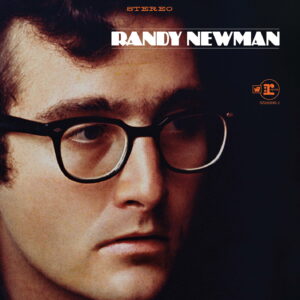
1968, 5.5/10
Randy Newman’s debut is odd – it features iconic songs like ‘I Think It’s Going To Rain Today’ and ‘I Think He’s Hiding’, but it’s still one of his weakest studio records. Newman purposely made an album with little rock influence – it’s just Newman’s voice and piano backed with strings. Newman’s voice simply isn’t strong enough, especially at this point in his career, and it’s subsumed under the orchestral arrangements, making the whole record sound anaemic. The record’s also known by the text on the back of the record, Randy Newman Creates Something New Under The Sun. According to Rolling Stone it was unsuccessful upon release – it had only sold 4,500 copies when Newman’s next album came out.
Newman would get much better at arranging piano and orchestra together – ‘Marie’ from Good Old Boys is much more pleasing than anything here. Even though it’s not musically satisfying, Randy Newman is notable for featuring some of the writer’s darkest lyrics. On ‘Davy The Fat Boy’ the narrator takes advantage of his friend by using him as a circus attraction. ‘I Think It’s Going To Rain Today’ has been covered by everyone from UB40 to Peggy Lee, although Newman signed away publishing for his first record and doesn’t receive any royalties from its material.
Randy Newman is an odd debut, but Newman would quickly learn how to present his songs more successfully.
12 Songs
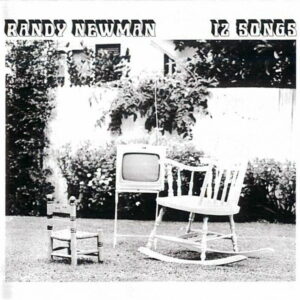
1970, 7.5/10
In the wake of The Band’s success, lots of artists were making Americana albums in the early 1970s – Elton John and Grateful Dead are notable examples. On Newman’s Americana record there are rockers like ‘Mama Told Me Not To Come’ and ‘Have You Seen My Baby’. Often, however, this material sounds like it’s drawn from the pre-rock era – songs like ‘Let’s Burn Down The Cornfield’ have no drums, while on ‘Uncle Bob’s Midnight Blues’ Newman’s vocals are mixed below his piano. Musicians include Jim Gordon, Ry Cooder, and Byrds members Gene Parsons and Clarence White. Perhaps due to its traditional natures, 12 Songs seems to have slipped in acclaim over the years – it was lauded by Rolling Stone and Robert Christgau upon release but is now less regarded than subsequent Newman records.
The rockers stand out – along with ‘Mama Told Me Not To Come’, ‘Have You Seen My Baby’ is a fine opener. Musically ‘Old Kentucky Home’ is straitlaced country-rock, but it slips in snide lines like “Sister Sue she’s short and stout/But she didn’t grow up, she grew out”. Newman also takes on the 1920s song ‘Underneath the Harlem Moon’, drawing attention to its racist lyrics. The more idiosyncratic arrangements on songs like ‘If You Need Oil’ and ‘Let’s Burn Down The Cornfield’ are tougher going; despite some interesting slide guitar, they don’t seem like Newman’s most memorable melodies and his voice isn’t strong enough to carry them on intensity alone.
12 Songs presents Newman’s satirical vision more clearly than on his debut, but he’s got a bunch of better records.
Sail Away
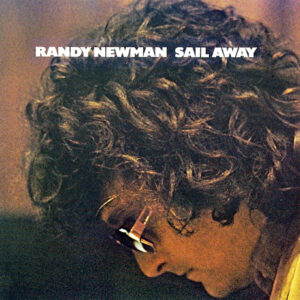
1972, 10/10
On his first two albums, it felt like Newman was trying too hard to capture a specific sound. On his third, he just lays his songs down naturally, and they’re all the better for it. It’s always centred on Newman’s piano, sometimes with a simple rhythm section or strings. Newman’s brilliance as a songwriter is clear in these simple arrangements – Beach Boy Brian Wilson reportedly obsessed over Sail Away, playing it repeatedly.
Almost every song is a classic – Newman plays a slave ship owner on a recruiting drive on ‘Sail Away’, while he satirises American politics on ‘Political Science’. Fascinatingly, he offers two completely different perspectives on God on ‘He Gives Us All His Love’ and ‘God’s Song (That’s Why I Love Mankind)’. Joe Cocker made ‘You Can Leave Your Hat On’ into a hat, but it replaces the snide humour of Newman’s original with bluster, while ‘Lonely at the Top’ was intended for Frank Sinatra. ‘Burn On’ is written about the same Cleveland river than R.E.M. chronicled in ‘Cuyahoga’.
Sail Away is impeccable, a talented songwriter laying down classic after classic.
Good Old Boys
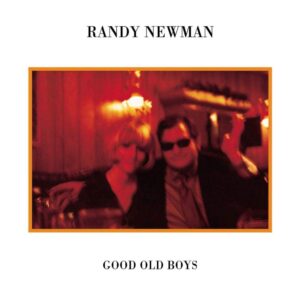
1974, 10/10
Newman’s fourth album was originally planned to all come from the perspective of a resident of the Deep South – its demos were eventually released as Johnny Cutler’s Birthday. Newman scrapped the concept, although kept many of the songs – while Good Old Boys has a distinct Southern flavour, it’s written from multiple perspectives. It’s just as great as Sail Away, but there are subtle changes – there’s less humour than before, with Newman playing it straight on songs like ‘Louisiana 1927’. Good Old Boys also has more of a full band feel, with a rhythm section on most tracks.
The tracks centred around Johnny Cutler are often the most arresting, often due to their provocative nature. Most provocative of all is the opener ‘Rednecks’ – while Newman certainly has valid points regarding the hypocrisy of race relations between the north and south of the USA, the use of the n-word is disorienting if you’re not listening properly. ‘Marie’ is a genius piece of song-writing, Johnny Cutler professing his love for Marie despite his numerous shortcomings (“When you’re in trouble I just turn away”), backed by gorgeous orchestration. Newman digs into US history with the beautiful ‘Louisiana 1927’, while ‘Mr President (Have Pity on the Working Man)’ is a contemporary plea to Richard Nixon. ‘Kingfish’ is a side two highlight, as is the quirky and hilarious ‘A Wedding in Cherokee County’.
Sail Away and Good Old Boys are one of the strongest pairs of albums in the popular music canon.
Little Criminals
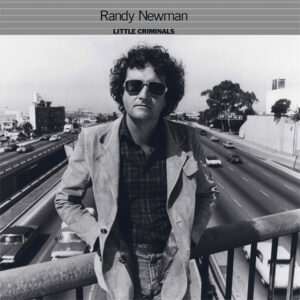
1977, 7.5/10
Newman peaked commercially with his fifth album, Little Criminals. The album cracked the US top ten, while lead single ‘Short People’ made it all the way to #2. After the subtlety of earlier Newman satires like ‘Rednecks’, ‘Short People’ was an attempt to blatantly ridicule prejudice by choosing an arbitrary subject. Newman even featured a bridge that stated “short people are just the same as you and I”, but still found himself receiving threats and being banned from some radio stations. Little Criminals is also notable for the sheer number of appearances from members of the Eagles – Glenn Frey, Tim Schmitt, Joe Walsh, Don Henley, and Eagles associate J.D. Souther all appear. Little Criminals doesn’t reach the sublime standard set by Newman’s previous two records, but it’s still a strong collection of prime-era Newman songs.
‘Short People’ is the most immediate song, although the chorus of ‘Baltimore’, with Glenn Frey and J.D. Souther on backing vocals, also sounds like a pop hit. I prefer the atmospheric piano of ‘Jolly Coppers on Parade’ and the delicacy of ‘In Germany Before The War’. Newman posits himself as a cowboy on the ridiculous ‘Rider in the Rain’, although ‘Kathleen (Catholicism Made Easier)’ doesn’t quite live up to its tantalising title.
It’s unfortunate that Newman didn’t make his commercial breakthrough with Sail Away or Good Old Boys – he’d probably be more widely respected. Little Criminals still has a lot to like regardless.
Born Again
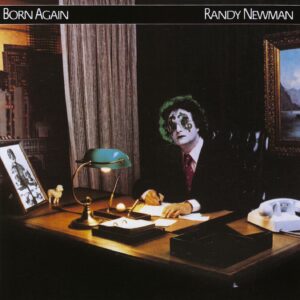
1979, 5/10
Randy Newman followed his best-selling record with a less convincing effort. Newman’s songs became nastier and more cynical – Good Old Boys worked because, underneath the jokes at the expense of southerners, it was clear that Newman retained an affection for the subject matter. Many of these songs are just nasty without any redeeming humour – songs like ‘Mr. Sheep’ are sour cutdowns without any compensatory cleverness. Newman’s music also feels more reliant on blues vamps than usual and Born Again feels like a classic era Randy Newman record that he mostly phoned in.
The sour humour works fine on ‘It’s The Money That I Love’, because the subject doesn’t require any sympathy. The second track, ‘The Story of a Rock and Roll Band’, a loving tribute from a misguided ELO fan, is quirky and fun. But after that solid start, Born Again is tough going. The second half highlight is the weirdo yacht rock of ‘Spies’, but it’s more notable for its lyrics than the music.
Born Again killed off Newman’s momentum as a pop artist – with his success of 1981’s Ragtime soundtrack, you could argue that soundtracks became Newman’s main focus and his singer/songwriter material became a hobby.
Trouble in Paradise
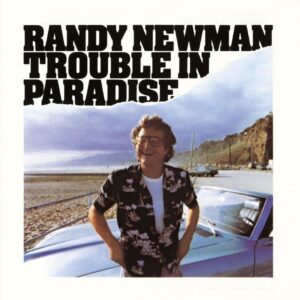
1983, 6.5/10
Like Born Again, Trouble in Paradise often feels bitter, Newman not tempering his lyrical barbs with affection. The target is often celebrity excess in L.A. – the record was partly inspired by an in-flight conversation with Don Henley, who told Newman he could no longer afford to charter Learjets. Henley’s one of many guests on the record – unsurprisingly for a 1983 L.A. record the members of Toto are heavily involved, while there’s a vast cast of backing vocalists, including Henley, Paul Simon, Linda Ronstadt, Bob Seger, Jennifer Warnes, Lindsey Buckingham, Christine McVie, and Rickie Lee Jones.
One reason Trouble in Paradise improves upon Born Again is the presence of more sincere songs. Paul Simon’s duet vocals add some poignancy to ‘The Blues’. ‘Same Girl’ and ‘Real Emotional Girl’ are both gorgeous, delivered without irony and with just Newman and his piano. ‘I’m Different’ also feels sincere, Newman delivering self-effacing lines like “drives the women kind of wild”, while the backing chorus evokes old-time music with their cutesy “gosh darn”. Like Born Again, Trouble in Paradise starts strongly; ‘I Love L.A.’ is used by L.A. sporting teams for its singalong chorus, but the verses are cynical, while ‘Christmas in Capetown’ introduces another dubious narrator. There’s a rough stretch in the middle of the record – ‘Mikey’s’, ‘My Life Is Good’, and much of ‘Miami’ consist of Newman hollering cynical lyrics over dated synths.
Trouble in Paradise has some good material, but its troubled by its nasty streak and glossy L.A. sound, making it one of Newman’s less essential records.
Land Of Dreams
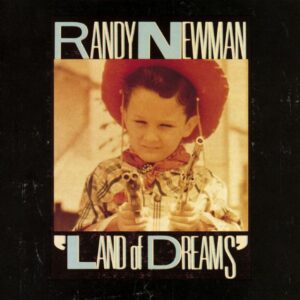
1988, 8/10
Newman sounds re-energised on Land of Dreams. The nihilistic humour that dominated his previous two records has largely dissipated. Instead, he’s often nostalgic, writing autobiographical material about his childhood in New Orleans like ‘Dixie Flyer’ and ‘New Orleans Wins The War’. There’s still satirical humour on songs like ‘Roll With The Punches’ and ‘I Want You To Hurt Like I Do’, but they’re balanced by warmth. The late 1980s sheen, with Jeff Lynne involved in the production, works fine for Newman and he’s better able to pursue his interest in pre-rock music forms in this setting. He’s again supported by an array of guests, including Tom Petty and Mark Knopfler.
‘It’s The Money That Matters’, with Knopfler on guitar, hit #1 on the Mainstream Rock chart. ‘I Want You To Hurt Like I Do’ is an overlooked Newman classic, with its Sam Cooke quotations, but the main attraction is the opening trio of autobiographical songs. Opener ‘Dixie Flyer’ is particularly good – it benefits from a busy arrangement with Newman’s New Orleans piano, horns, and twangy lead guitar all fighting for attention. Newman’s rarely as unguardedly happy as on ‘Falling In Love’, while he tries rapping on ‘Masterman and Baby J’; it’s not as bad as you’d expect.
Land of Dreams was acclaimed upon release – it seems a little forgotten now, but it’s charming and enjoyable.
Randy Newman’s Faust
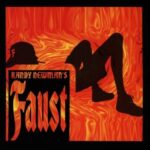
1995, not rated
In 1995 Newman released a musical based on Goethe’s Faust, where God (played by James Taylor) and the devil (played by Newman) contend for the soul of Henry Faust (played by Don Henley). Elton John, Bonnie Raitt, and Linda Ronstadt also appear. I’m not planning to review this, as it’s a musical rather than a studio album, but I’m listing it for completeness.
Bad Love
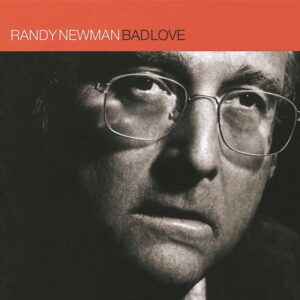
1999, 8.5/10
On ‘I’m Dead (But I Don’t Know It)’, Newman sings about an ageing rock star going through the motions: “Each record that I’m making/Is like a record that I’ve made/Just not as good.” These statements don’t apply to the song’s parent album – Newman’s lyrics have never been sharper, and Mitchell Froom’s production is low-key and fitting. Like every great Newman album, there’s a mix of satire and sentimentality, and his voice has improved with age.
‘The Great Nations of Europe’ attempts to summarise the history of colonialism and it’s hilarious, with lines like “Hide your wives and daughters/Hide your groceries too/Great nations of Europe coming through”. ‘I’m Dead (But I Don’t Know)’ pushes surprisingly close to hard rock and tackles country on ‘Big Hat, No Cattle’. He’s hilarious on ‘Shame’, which mocks an old man chasing a younger woman, and poignant on ‘I Miss You’, directed to his first wife.
Bad Love isn’t Newman going through the motions, it’s a shockingly sharp singer-songwriter record.
The Randy Newman Songbook Vol. 1

2003, not rated
Randy Newman’s recorded three volumes of solo reworkings of his back catalogue. I’ve focused on his original studio albums and haven’t heard this, but re-recording songs from dated albums like Randy Newman and Trouble in Paradise seems like a good idea. He throws in soundtrack work too, like ‘Ragtime’ and ‘When She Loved Me’. Newman told the A.V. Club that “It’s sort of an ugly Norah Jones record. You can put it on and eat potato chips and drink Pepsi to it, unlike my other records.” Two further volumes have followed, in 2011 and 2016.
Harps and Angels
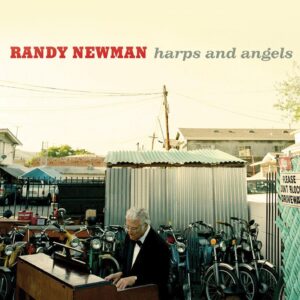
2008, 8/10
There were distractions like hard rock and country, but by and large Bad Love felt like a return to the straightforward piano and vocals of Sail Away. In contrast, Harps and Angels marks a return to the old-timey feel of 12 Songs and the New Orleans feel of Good Old Boys. The musical colour is largely provided by Newman’s bluesy piano and horn sections. More importantly, it’s a continuation of the late-period excellence of Bad Love, Newman dazzling with his wit and wisdom.
Newman’s brilliant at political songs, and ‘A Few Words in Defense of Our Country’ is no exception. He defends George W. Bush’s America by comparing it to the Caesars and the Spanish inquisition. “Put people in a terrible position/I don’t even like to think about it/Well, sometimes I like to think about it.” On ‘A Piece Of Pie’, surely the only song to use the phrase “Jackson Browne” as the refrain, he laments that “the rich are getting richer”. Newman’s as provocative as ever on ‘Korean Parents’, and closer ‘Feels Like Home’, recycled from Faust, is a warm closer to balance out his acerbic wit.
Harps and Angels is another fascinating record from Newman, still making great music at retirement age.
Dark Matter
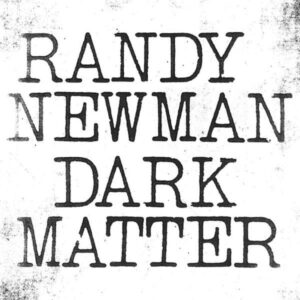
2017, 7/10
Newman’s musical work spills over into his 11th album – opener ‘The Great Debate’ pits science and religion against each other, reusing material from Faust in the longest piece in Newman’s studio catalogue. The musical flavour also comes out with Newman playing a Jack and Bobby Kennedy conversation in Brothers, and the chorus of Putin girls in ‘Putin’. A couple of these songs are from Newman’s archives; ‘It’s a Jungle Out There’ won an Emmy in 2004 for the TV series Monk, while ‘She Chose Me’ was written around 1990 for an ill-fated TV show.
The long and dramatic ‘The Great Debate’ is a tricky song to sequence – it’s good, but it feels like a separate entity from the rest of the record. Take it away, and Dark Matter feels a little brief and slight, although a lot of these songs stand among Newman’s best. ‘Putin’ is the highlight, Newman satirising the Russian leader’s cultivated macho image – “And when he takes his shirt off/He drives the ladies crazy/When he takes his shirt off/Makes me wanna be a lady.” Newman’s as lyrically sharp as ever; ‘Brothers’ satirises the U.S.’s foreign policy, with the Kennedys planning Bay of Pigs to rescue Cuban singer Celia Cruz, while ‘Sonny Boy’ discusses the strange career of Sonny Boy Williamson. Closer ‘Wanderin’ Boy’ has a folk lilt – if Newman never records another album, it’s a fine way to close his career.
Dark Matter isn’t quite as stellar as Newman’s other late-period records, but fans won’t want to miss it.
10 Best Randy Newman Songs
Political Science
The Great Nations of Europe
Sail Away
Marie
Louisiana 1927
Dixie Flyer
Rednecks
You Can Leave Your Hat On
A Few Words in Defense of Our Country
Putin
Back to 1970s Album Reviews
5 Comments
Leave a Reply
Related Pages
About
Aphoristic Album Reviews is almost entirely written by one person. It features album reviews and blog posts across a growing spectrum of popular music.
Review Pages
Read about the discographies of musical acts from the 1960s to the present day. Browse this site's review archives or enjoy these random selections:
Blog Posts
I add new blog posts to this website every week. Browse the archives or enjoy these random selections:

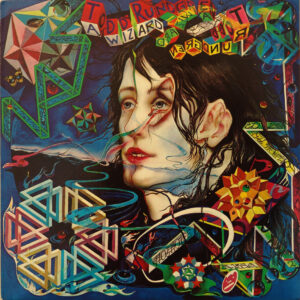
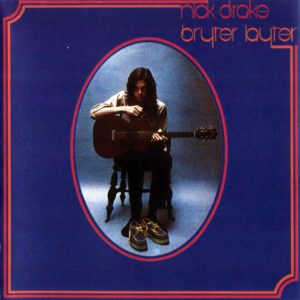

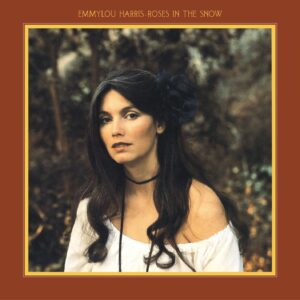
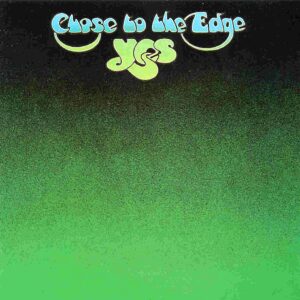

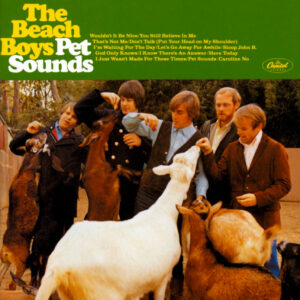
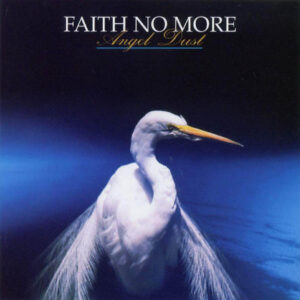

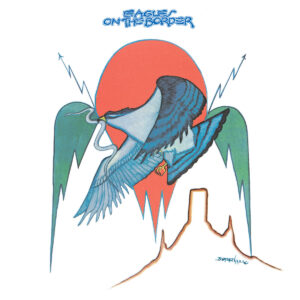
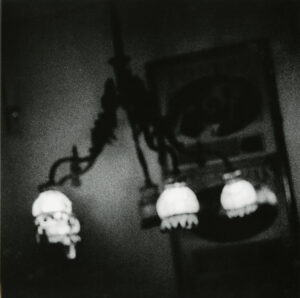

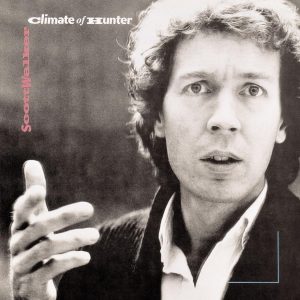


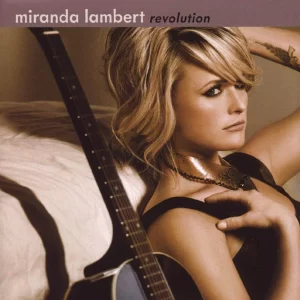
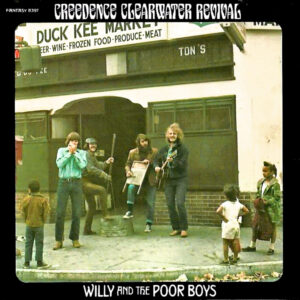
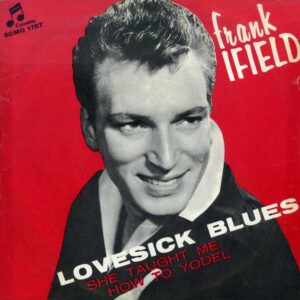
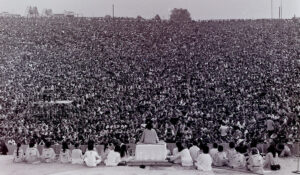




This is a mind-blowing post. I love Randy Newman and, as a Gen Xer, one of my fond childhood memories is Randy Newman’s “Short People.” Well, I had a weird childhood. But I do remember as a youngster thinking about that song, how oddly wonderful it was, and how original; and how it has what it takes to reach a broad audience.
Having what it takes to reach a broad audience is always an interesting question – it’s not his strongest work IMO, but it still has something that makes it more accessible that his other work. Thanks for reading and writing in!
Yeah, I’m guessng Randy Newman would not want to dwell on talking about Short People for too long. Or maybe he loves it. He definitely has far more complex and significant work.
Normally a cult artist with a smaller fanbase would be grateful for a hit to bring in some money. But Newman has all his soundtracks so he’s not reliant on it.
He told AFR that: “If I’m now the Toy Story guy, that’s the way it goes. It’s better than, ‘Newman, 86, died yesterday, composer of Short People’,” he jokes.
Ha! That sounds familiar. I think I recall that Toy Story quote!